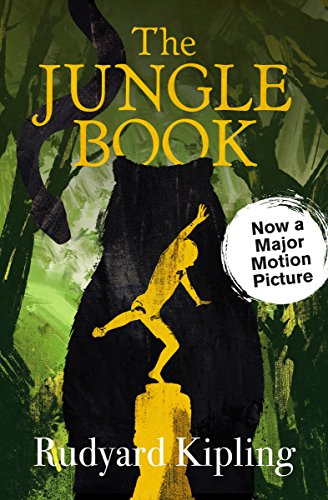Rudyard Kipling
The light that failed. By: Rudyard Kipling: Novel
Paperback
(CreateSpace Independent Publishing Platform Dec. 8, 2016)
The Light That Failed is a novel by Rudyard Kipling that was first published in 1890 in Lippincott's Monthly Magazine dated January 1891. Most of the novel is set in London, but many important events throughout the story occur in Sudan or India. The Light that Failed follows the life of Dick Heldar, a painter who goes blind. A play by George Fleming, starring Johnston Forbes-Robertson, his wife Gertrude Elliott, and Sydney Valentine, was first staged in the West End from February to April 1903[1] and moved on to Broadway in November, making the story more famous.[2] It was made into a 1916 silent film by Pathé, with Robert Edeson and Jose Collins, a 1923 silent film by Famous Players-Lasky, and a 1939 film by Paramount, starring Ronald Colman as Heldar, with Muriel Angelus, Ida Lupino, and Walter Huston. Joseph Rudyard Kipling ( 30 December 1865 – 18 January 1936) was an English journalist, short-story writer, poet, and novelist. Kipling's works of fiction include The Jungle Book (1894), Kim (1901), and many short stories, including "The Man Who Would Be King" (1888). His poems include "Mandalay" (1890), "Gunga Din" (1890), "The Gods of the Copybook Headings" (1919), "The White Man's Burden" (1899), and "If—" (1910). He is regarded as a major innovator in the art of the short story; his children's books are classics of children's literature; and one critic described his work as exhibiting "a versatile and luminous narrative gift". Kipling was one of the most popular writers in the United Kingdom, in both prose and verse, in the late 19th and early 20th centuries. Henry James said: "Kipling strikes me personally as the most complete man of genius, as distinct from fine intelligence, that I have ever known." In 1907, at the age of 42, he was awarded the Nobel Prize in Literature, making him the first English-language writer to receive the prize, and its youngest recipient to date.He was also sounded out for the British Poet Laureateship and on several occasions for a knighthood, both of which he declined. Kipling's subsequent reputation has changed according to the political and social climate of the age and the resulting contrasting views about him continued for much of the 20th century.George Orwell called him a "prophet of British imperialism".Literary critic Douglas Kerr wrote: "[Kipling] is still an author who can inspire passionate disagreement and his place in literary and cultural history is far from settled. But as the age of the European empires recedes, he is recognised as an incomparable, if controversial, interpreter of how empire was experienced. That, and an increasing recognition of his extraordinary narrative gifts, make him a force to be reckoned with."
- ISBN
- 1540887057 / 9781540887054
- Pages
- 120
- Weight
- 11.5 oz.
- Dimensions
- 8.0 x 0.28 in.
Enjoy reading The light that failed. By: Rudyard Kipling: Novel? You may also like these books
-
U

Rudyard Kipling
Just So Stories: The Original 1902 Edition With Illustrations by Rudyard Kipling
Hardcover (Suzeteo Enterprises Aug. 11, 2019) -
U

Rudyard Kipling
The Jungle Book
Paperback (CreateSpace Independent Publishing Platform Nov. 29, 2014) -
U

Rudyard Kipling
The Jungle Book The Original Illustrated 1894 Edition
Paperback (Independently published Sept. 9, 2019) -
S

Rudyard Kipling
Oxford Bookworms Library: The Jungle Book: Level 2: 700-Word Vocabulary
Paperback (Oxford University Press March 15, 2008) -

Rudyard Kipling
Rudyard Kipling: The Complete Novels and Stories + A Biography of the Author
language (Book House Publishing June 19, 2017) -
U

Rudyard Kipling
The Cat That Walked by Himself: And Other Stories
Hardcover (British Library Oct. 15, 2010) -

RUDYARD KIPLING
THE JUNGLE BOOK, Walt Disney Presents. A Disneyland Record
Paperback (GROSSET & DUNLAP Jan. 1, 1967) -

Rudyard Kipling
Greatest Works of Rudyard Kipling: The Story of the Gadsbys,The Phantom Rickshaw, The Light that Failed, The Jungle Book,The Second Jungle Book,The White Man's Burden,Kim... & Other Indian Tales
language (Century eBooks Aug. 23, 2012)












